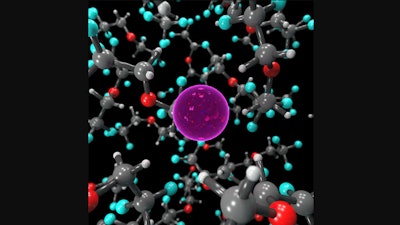
Scientists have long suspected that a battery based on fluoride could offer a far longer life than conventional batteries.
A newly published study, however, details a method that, for the first time, could make that battery practical.
Chemists from the California Institute of Technology, along with scientists from the Honda Research Institute, Lawrence Berkeley National Laboratory and NASA’s Jet Propulsion Laboratory, identified a technique to make fluoride-based batteries functional at room temperature.
Fluoride is the negatively charged form of the element fluorine, and chemists noted that negative ions travel relatively easily through an electrode compared to positive ions, such as lithium ions.
Scientists first sought to create rechargeable fluoride batteries in the 1970s, but the material is highly corrosive and reactive, and the solid-state batteries worked only at very high temperatures.
In the new study, published in the journal Science, researchers used an electrolyte liquid solvent known as BTFE to keep the fluoride ion stable in a liquid state. Liquid batteries, by contrast, are able to function at lower temperatures.
Although the research remains in its early stages, the authors said the initial breakthrough indicates that scientists should take another look at fluoride batteries.
"Fluoride batteries can have a higher energy density, which means that they may last longer — up to eight times longer than batteries in use today," Robert Grubbs, a Cal Tech chemist and Nobel laureate, said in a release.






















